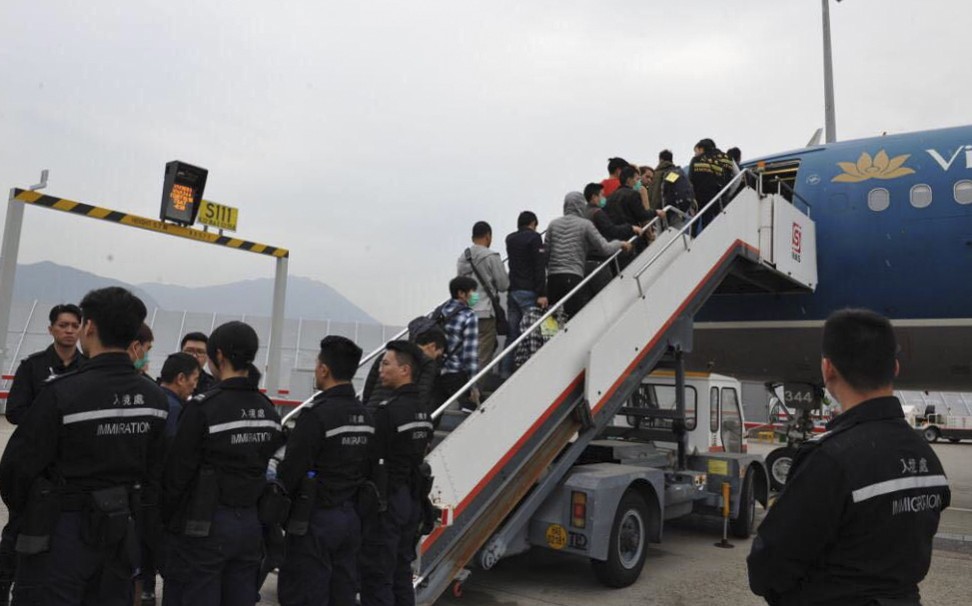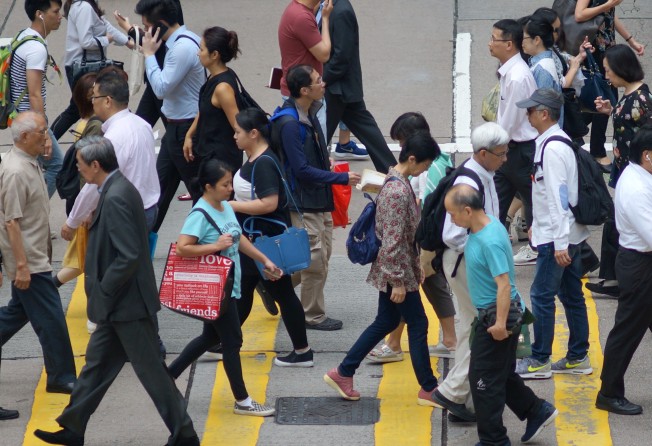
Racism is alive and well in Hong Kong, but there’s growing sympathy for refugee children
New survey finds six in 10 Hongkongers think there is prejudice against ethnic minorities, but believe children born here to refugee parents should have right to stay

A new study has found that six in 10 of the city’s Chinese residents believe prejudice against ethnic minorities is still rife in Hong Kong.
But the same survey revealed growing support for giving right of abode to refugee children born in the city, and allowing some asylum seekers to work here.
And, as Hong Kong’s ties with mainland China are pulled ever tighter, nearly six in 10 urged the local government to improve its human rights policy, with freedom of speech, political freedom, treatment of asylum seekers and refugees’ rights the biggest concerns among those questioned.
Dr Isabella Ng, the study’s principal investigator and assistant professor at the Education University of Hong Kong, said it was encouraging to see the support the public gave to asylum seekers and refugees.
“It should be a wake-up call to the policymakers who have been consistently attacking this marginalised group,” she said.
“The survey results caution the government to handle human rights issues with care, and be aware of Hong Kong’s political legacy from a democratic and liberal tradition, and its position as an international city.”
The study, commissioned by the department of Asian and policy studies at EdU and conducted by the University of Hong Kong’s public opinion programme, comes as the city is under a five-year periodic review by the UN. Officials from several countries and regions, including Hong Kong, will meet later this year in Geneva to discuss the results of the review.
According to the survey, almost 60 per cent of respondents believed Hongkongers were prejudiced against ethnic minorities, and more than 80 per cent said locals needed to know more about other ethnic groups.

The research showed most respondents – 51.6 per cent – supported the idea of children of asylum seekers having the right of abode in the city, with 38.5 per cent opposed to it. There are hundreds of children of asylum seekers stateless in Hong Kong, as those born in the city are not recognised as residents.
In principle, every person should be granted the right to work
The survey also revealed 34 per cent of people think asylum seekers who have been here for more than five years should be allowed to take low-end jobs.
Ng said the right to work for protection claimants must be introduced.
“In principle, every person should be granted the right to work,” the assistant professor said. “It’s not just about getting money, it is also self-esteem and identity. People without work very often will have psychological problems, and that will also affect their families.
“Also, practically speaking, Hong Kong has many jobs that need to be filled, like in retail, construction, waitressing. Many people have been in Hong Kong for more than five years. They speak our language, understand our system and culture. To have them is an asset.”
As of December, 5,899 people were waiting to have an application for asylum screened. Most of them were from India, Pakistan and Bangladesh.
Regardless of the number of years their cases are on hold, asylum seekers are not allowed to work in the city – with most having to rely on welfare stipends and charity.
Hong Kong does not resettle asylum seekers, but it is obliged to screen their claims. The few who are recognised as refugees are referred to the UN, which is responsible for finding a third country to receive them.
Some 62 per cent of the respondents suggested the government should crack down on human trafficking syndicates, whereas about 40 per cent said more staff should be hired to speed up the screening process.
Despite getting more positive responses compared with a previous survey conducted in 2016, the study showed negative views about asylum seekers still prevailed, with about 60 per cent of respondents labelling them “fake refugees”, and some 50 per cent believing they were “criminals”.
The survey – based on phone interviews with 1,002 Chinese Hongkongers who spoke Cantonese and were aged over 18, between February 27 and March 8 – concluded that further investigation about the media influence over such perceptions was needed.